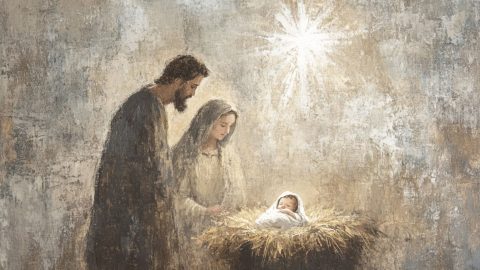In this theological reflection on Isaiah 40, Bishop Holcomb explores how the desperation caused by human suffering and sin leads directly to the “good and...
Read More >
Bishop’s Blog
Advent: God Is Bringing Us Hope
12/17/25 • Bishop HolcombAdvent: God Is Keeping His Promises
11/19/25 • Bishop HolcombThe Advent season celebrates God’s faithfulness in fulfilling Old Testament promises of a coming deliverer, culminating in the birth of Jesus Christ, the promised Savior....
Read More >James: Portrait of the Resurrected Life
10/28/25 • Bishop HolcombBishop Holcomb shares his hope for the Episcopal Diocese of Central Florida, drawing inspiration from the transformation of the Apostle James, who moved from skepticism...
Read More >Holy Cross Day: Glory Through Suffering
9/11/25 • Bishop HolcombPeter’s struggle to understand Jesus’ mission reflects our own tendency to seek glory without suffering, yet the Transfiguration and the cross reveal that true glory...
Read More >St. Augustine and Grace Through the Centuries
8/12/25 • Bishop HolcombGrace is the central theme of the Christian faith, powerfully proclaimed through the lives and teachings of Augustine, Calvin, Ryle and Spurgeon, each emphasizing God’s...
Read More >The Voice That Changes Everything
7/10/25 • Bishop HolcombThis article explores the transformative power of Jesus’ words, highlighting four Gospel moments where His voice offers rest, grace, hope and peace to the weary,...
Read More >From Pentecost Forward: Gospel, Church, Mission
6/4/25 • Bishop HolcombThis article explores how the Holy Spirit empowers Jesus’ followers to bear witness to the gospel, enabling its spread from Jerusalem to the ends of...
Read More >How Are We to Be ‘More Than Conquerors’?
5/21/25 • Bishop HolcombBecause of Jesus’ resurrection and victory over death, Christians are empowered to endure suffering and overcome trials through their union with Christ, who has already...
Read More >What Does Jesus’ Resurrection Have to Do With Me?
4/16/25 • Bishop HolcombBishop Holcomb explores how Christ’s death and resurrection address both our guilt as sinners and our suffering as victims, offering forgiveness, freedom and restored relationship...
Read More >Psalm 51 and Ash Wednesday: A Reflection
2/27/25 • Bishop HolcombBishop Holcomb explains that Lent is a season not of self-improvement but of repentance and returning to a merciful God, exemplified in Psalm 51 where...
Read More >The Creepy, Mysterious and Interesting History of St. Valentine’s Day
2/10/25 • Bishop HolcombBishop Holcomb unpacks the truth behind this popular holiday. Valentine’s Day, widely embraced in American culture, has murky origins blending pagan Roman fertility rituals, early...
Read More >Epiphany: Light for the Nations
1/6/25 • Bishop HolcombBishop Holcomb reminds us that Epiphany is a season that celebrates the revealing of God’s love and light to the whole world through Jesus Christ,...
Read More >











